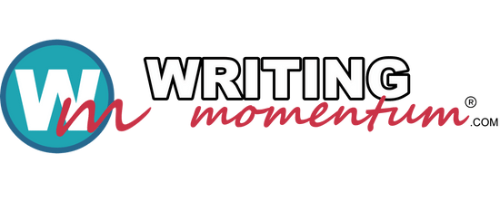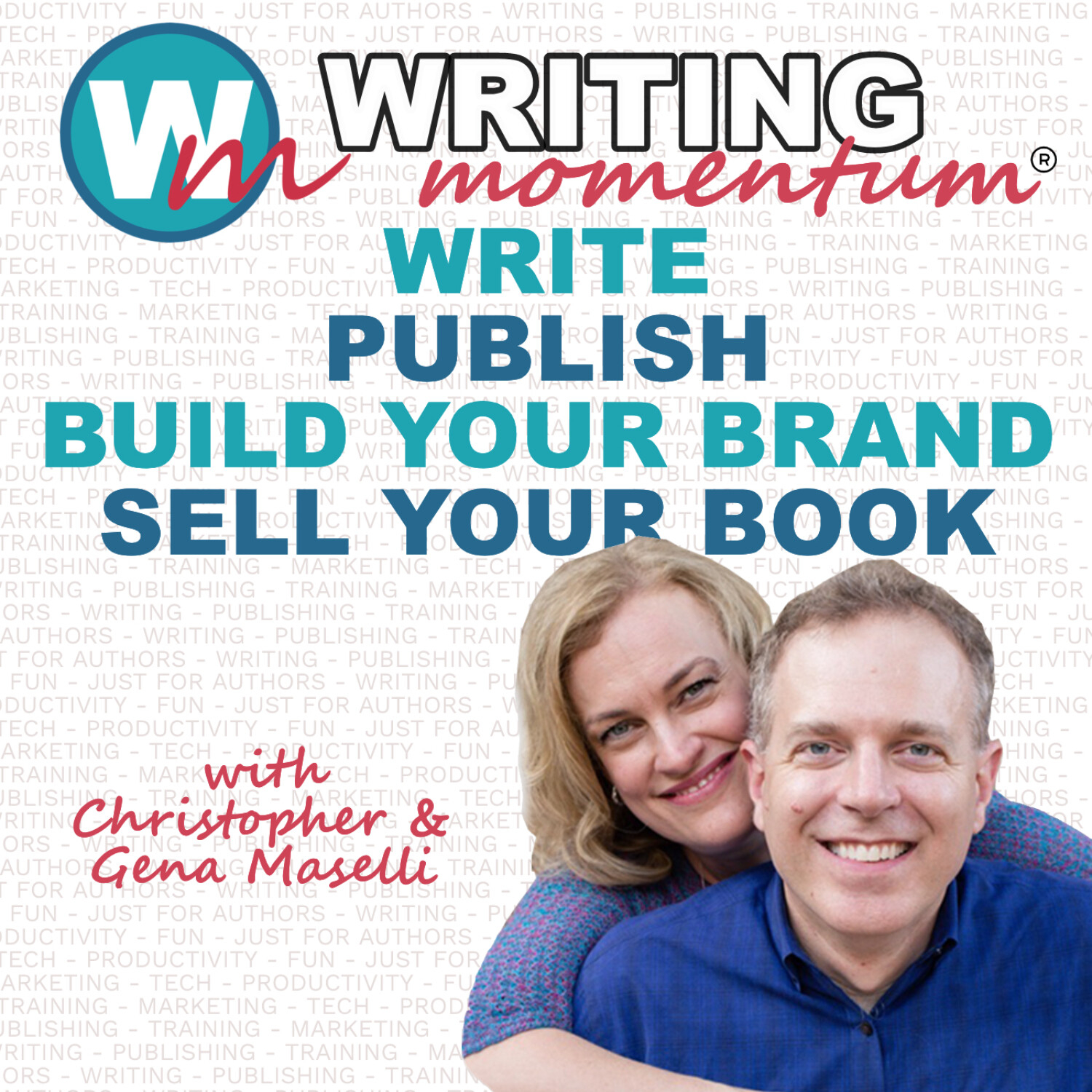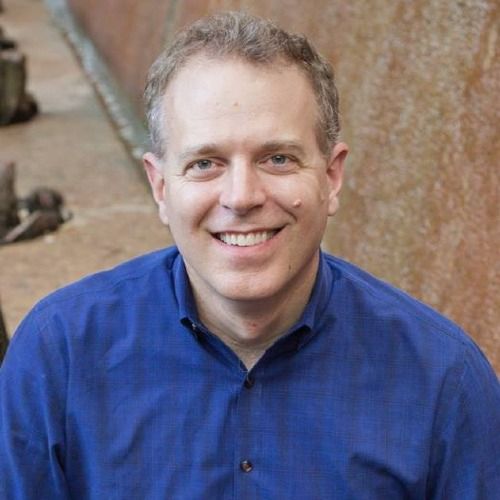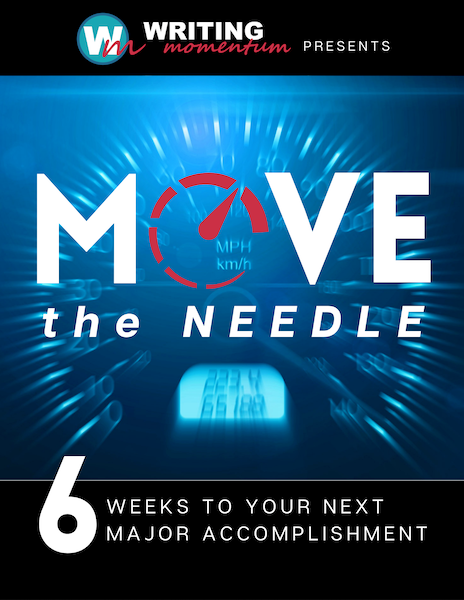Episode 115
Kickstart Your Writing Career: Emerging Writers' Guide
Gena and Christopher Maselli host the Writing Momentum Podcast, targeting emerging writers aspiring to write a book. They emphasize that the writing journey is not competitive and there's space for everyone. The podcast provides practical tips, including choosing a genre, understanding genre specifics, and the importance of knowing the rules before breaking them. They recommend reading extensively within one's genre, outlining other works, and learning about story structures with resources like Ronald Tobias's '20 Master Plots'. The hosts also stress the importance of joining the writing community for support and growth, encouraging listeners to engage with groups, conferences, and online platforms like Writing Momentum. They urge listeners to write daily, read in their genre, and join writing courses or communities. The podcast underscores that identifying as a writer is crucial, encouraging a mindset shift to embrace the writer's identity confidently.
- 00:00 Welcome to the Writing Momentum Podcast!
- 01:04 Embracing the Journey: Tips for New Writers
- 01:45 Choosing Your Genre: The First Step to Writing a Book
- 02:09 Understanding Genre Rules and Why They Matter
- 05:58 The Importance of Reading and Analyzing Your Chosen Genre
- 10:01 Navigating the Writing World: Conferences, Groups, and Resources
- 14:57 Embracing Your Identity as a Writer
- 16:36 Practical Writing Tips and Encouragement
- 18:32 Join Us on Your Writing Journey
- 19:01 Conclusion and Invitation to Subscribe
LINKS:
- 20 Master Plots by Ronald Tobias on Amazon: https://a.co/d/dsYvqOl
- Liz Wilcox's Email Marketing Membership at http://wmdeal.com/liz
- Get your FREE Move the Needle goal-setting for authors ebook at https://www.writingmomentum.com
- Write with us! Join Chris, Gena, and Rene each Wednesday at noon Central and let's get our writing DONE! https://www.writingmoments.com
Transcript
You've always dreamed of writing a book, but where do you start?
Speaker:We can help with that.
Speaker:Hi, and welcome to the Writing Momentum Podcast.
Speaker:I'm Gena Maselli, and this is my husband, Christopher Maselli.
Speaker:We're so glad you're here.
Speaker:And we are talking today to what we love to call emerging writers.
Speaker:These are people who are new to the party and they're wondering where to start.
Speaker:Hey, you're welcome to the party.
Speaker:We're so glad to have you.
Speaker:Here's something a lot of New writers may not realize, if you're a new
Speaker:writer, you may not realize this.
Speaker:There is room in this for all of us, right?
Speaker:This is not a competition.
Speaker:That's part of the reason we created this podcast and we have Writing
Speaker:Momentum, our website, and we have a lot of ways that we help other writers.
Speaker:It's because we don't believe we're in competition with one another, right?
Speaker:There is plenty of space out there for all of us to have success.
Speaker:And so we are so glad to have you along this ride with us.
Speaker:That's that's part of where you start is just realizing,
Speaker:hey, you're not alone in this.
Speaker:That's right.
Speaker:You are not alone in this.
Speaker:And we want to give you some practical tips for where to start, though,
Speaker:because I think there's a lot of people, in fact, because we meet them.
Speaker:We meet people all the time who have said, you know, I've always wanted
Speaker:to write a book or I've had this idea for a book and yet they wonder, okay,
Speaker:where do I even start with this?
Speaker:What do I even do?
Speaker:Where do I even go?
Speaker:And so we want to give you just a few ideas of just where to go to
Speaker:get your feet wet to start figuring out how to get started in this.
Speaker:So Chris, Kick us off.
Speaker:Where do people go and what do they do?
Speaker:Where do they start when they know they want to write a book?
Speaker:So when you want to write a book, the first thing of course you
Speaker:want to do is you want to decide on what genre you're writing in.
Speaker:In other words, what kind of book will this be?
Speaker:Will it be a fiction book?
Speaker:Will it be a non fiction book?
Speaker:Will it be a fantasy book?
Speaker:A sci fi book?
Speaker:A memoir?
Speaker:Self help book.
Speaker:What kind of book?
Speaker:A children's book?
Speaker:And here's why you need to know that.
Speaker:Because every kind of book has its own little quirks, right?
Speaker:That work in the market.
Speaker:A children's picture book, for instance, is almost always 32 pages.
Speaker:Now, if you don't know that going in, you might start writing something that
Speaker:isn't a children's book at all, but you think you're writing a children's book.
Speaker:So you've got to kind of find out what are the Unspoken rules behind the kind
Speaker:of book that you want to write behind that genre that you're writing it, right?
Speaker:What makes books in that genre work?
Speaker:Because remember, books have been around for a long time So people have tried
Speaker:all kinds of different things and that doesn't mean there are not outliers But
Speaker:it does mean that when you're starting out you want to know what the rules are
Speaker:before you do anything try to break them.
Speaker:Yeah, I think that's the thing though that you, you have to remember is
Speaker:like Chris said, every genre has a kind of the things that are included
Speaker:in there that have to be in there.
Speaker:It would be like writing a romance, but not introducing the two characters.
Speaker:The character triangle.
Speaker:Or the triangle, yes.
Speaker:Every romance has a character triangle.
Speaker:That's a key to the romance.
Speaker:Genre.
Speaker:So there are these keys that are included in these genres in each genre and it can
Speaker:be things like page counts like Chris said children's picture books are usually 32
Speaker:pages, but a children's chapter book is going to be different a Children middle
Speaker:grade novels going to be different a self help book is going to be different
Speaker:just to give you an idea an autobiography of a well known person, can run up
Speaker:to 200,000 words, but you know what?
Speaker:A self-help book.
Speaker:Talking about helping people overcome something or gain knowledge in
Speaker:something is probably only going to be about 40, 000 words, 45, 000.
Speaker:So there's these kind of rules that you have to know before you break them.
Speaker:But even going deeper in that, what are the elements that you need in
Speaker:each book, each genre, that you want to do that you need to include in
Speaker:order for that genre to be successful or your book to be successful.
Speaker:And here's the thing about that.
Speaker:A lot of emerging writers will say, well, I want to write this book.
Speaker:And then they'll come up with all these ideas about how to make it different from
Speaker:anything else that's out on the market.
Speaker:And the problem with that is, is that you are going to have a harder time
Speaker:narrowing down who your reader is because readers have an expectation of what
Speaker:they're going to get when they read in the genre that they want to read in.
Speaker:So if they're reading in a specific genre, they're reading your book, you tell
Speaker:them that it's one thing and then you're throwing in elements from all these other
Speaker:genres Then that's gonna confuse them and a confused reader is not a repeat reader.
Speaker:They may not want to come back and read your book too.
Speaker:So that's why it's just really important to under one reason why it's
Speaker:just really important to understand what the elements are for each kind.
Speaker:And it's not that you can't be creative with those kinds of things, right?
Speaker:Once you're more established, you can do all kinds of things that break the rules.
Speaker:But again, you've got to know the rules before you can break them.
Speaker:And I recommend to not just know the rules, but practice the rules, right?
Speaker:So write some of those just regular books before you try
Speaker:to do something really unusual.
Speaker:Now, that said, A lot of people make very successful careers
Speaker:just sticking with the rules.
Speaker:So there's nothing wrong with sticking with the rules.
Speaker:I love sticking with the rules on a lot of things that I write because I know
Speaker:it will work and it'll be successful.
Speaker:So when I start writing in a new genre, one of the things I will do is
Speaker:I will start reading in that genre.
Speaker:I will read other books that are like the kind of book I want to write.
Speaker:So if I want to write a biography, I'm going to start reading biographies.
Speaker:And Here's a key.
Speaker:I'm not just going to read them.
Speaker:I'm going to start outlining them.
Speaker:I'm going to figure out what are the authors of these books doing in each
Speaker:one that I like and as you do that for each book you're going to suddenly start
Speaker:seeing patterns and you're going to realize how those kind of books work.
Speaker:And he really does.
Speaker:Chris really does.
Speaker:When he's like, I'm thinking about writing in this genre,
Speaker:he'll start pulling out books.
Speaker:He will open them up.
Speaker:He will start outlining them because that's what it does.
Speaker:You're not just reading those books as a fan.
Speaker:You're now reading them with an analytical view.
Speaker:You're saying, okay, where did this person start?
Speaker:Where did this author start?
Speaker:Where did they go?
Speaker:How did they end their chapters?
Speaker:How did they start their chapters?
Speaker:How did they treat their dialogue?
Speaker:How did they move their reader through this?
Speaker:If it's a nonfiction book, if it's something they're trying to teach, how
Speaker:did they move that person through it?
Speaker:What elements did they include maybe within the chapters or at the end
Speaker:of the chapters to help with that?
Speaker:What kind of, element did they add at the end of the book that
Speaker:might help this book not only be an individual book, but maybe it becomes
Speaker:a group, a group study or a group reading project, something like that.
Speaker:So there are so many different things that you can gain just by really paying
Speaker:attention to how a book is written and really dissecting it and outlining it.
Speaker:Like what Chris is talking about.
Speaker:There is a wonderful book out there called 20 Master Plots by Ronald Tobias.
Speaker:20 Master Plots is for fiction writers.
Speaker:It's based on Aristotle's 3 act structure, but he shows 20 different
Speaker:kinds of plots that fiction writers can use based on that 3 act structure
Speaker:and shows you what needs to happen in Act 1, in Act 2, and in Act 3.
Speaker:This is a resource I love.
Speaker:I use it all the time.
Speaker:Anytime I'm writing fiction, I will find the kind of book that fiction
Speaker:book is in 20 Master Plots and I will read that chapter and make
Speaker:sure that I'm hitting all the beats.
Speaker:So again, that's 20 Master Plots by Ronald Tobias.
Speaker:It's a very good book.
Speaker:Go ahead and get that one.
Speaker:It's available on Amazon.
Speaker:And we can put the listing down in the show notes as well.
Speaker:We will make sure to do that.
Speaker:Now, you said a couple of things there, Chris, that I think would actually
Speaker:might scare some emerging writers.
Speaker:You used words like Aristotle and three act structure.
Speaker:And now for some people, they may know exactly what you're talking about.
Speaker:But for the truly brand new person, I just want to say, Don't
Speaker:get scared off by these terms.
Speaker:They're not as complicated and you know who Aristotle is, but
Speaker:you're going to read how the three act structure really goes back to
Speaker:Aristotle and how you can apply it.
Speaker:And you probably already do apply it.
Speaker:You just don't know you apply it.
Speaker:Something like the three act structure is kind of just, when we say things like
Speaker:that, it's just shorthand for essentially saying beginning, middle, and end.
Speaker:That's what the 3 act structure is.
Speaker:It's the beginning of the book, the middle of the book, and the end of the book.
Speaker:And then it gets, as you start to dig into it, you start to see
Speaker:certain things that have to happen in the beginning of the book.
Speaker:Have to happen in the middle of the book, have to happen at the end of the book for
Speaker:it to fit, conform to that, those rules that we know create a good story, right?
Speaker:So yeah, it's good to become familiar with those, but don't let those scare you off.
Speaker:Get something like 20 master plots and he will walk you through those for
Speaker:many different genres of fiction books.
Speaker:Yeah, absolutely.
Speaker:And also, like Chris said, by understanding this, it just makes
Speaker:your book, um, more desirable and more satisfying to your reader.
Speaker:So you want to definitely bring those together, but we're going to
Speaker:also tell it suggests that you do something that we have talked many
Speaker:times about on this podcast and we will continue to beat this drum and
Speaker:that is to enter the writing world.
Speaker:Um, I know that it can be scary when it's new, when you're completely brand
Speaker:new and you don't really know what you're doing maybe and you kind of
Speaker:think that all of a sudden a spotlight is going to drop out of the ceiling
Speaker:and light up and tell everybody that you don't deserve to be there.
Speaker:We are telling you, you absolutely deserve to be there.
Speaker:And, but let's talk about this writing world and what
Speaker:it is and why it's important.
Speaker:So here's the cool thing.
Speaker:If you've never, if you've never heard us talk about the writing
Speaker:world, here's what we mean.
Speaker:There's a whole sub world out there that we call the writing world.
Speaker:It is a place where writers get together and have conferences where
Speaker:they talk about writing and publishing.
Speaker:It's a place where writers.
Speaker:Get together on a weekly basis and have small groups and they share the
Speaker:chapters they've written and they critique each other's chapters to
Speaker:help make them better writers and it's always hopefully very encouraging.
Speaker:It's a place where you can attend workshops or join Facebook groups
Speaker:where people are constantly putting out memes and tips and
Speaker:great things about being a writer.
Speaker:And it's a place where you can make instant friends because
Speaker:you have something in common.
Speaker:It's a very supportive place.
Speaker:So we have found often when we get connected with other writers, we're
Speaker:like, hey, these are our people, right?
Speaker:We feel like we are together in this thing.
Speaker:And that's what we mean by the writing world.
Speaker:Almost every profession, I think, has something like this.
Speaker:It's where groups from that, groups of people in that, who
Speaker:all like that thing get together.
Speaker:And learn from each other.
Speaker:But you have to seek it out a little bit.
Speaker:It's not like it's just going to drop into your lap, or you're just
Speaker:going to walk out of your house and suddenly need another writer, right?
Speaker:You've got to seek it out.
Speaker:Are there conferences near me?
Speaker:Are there workshops?
Speaker:Are there podcasts like this that you can listen to?
Speaker:Is there an online space?
Speaker:That's why we created Writing Moments, which is our online space
Speaker:where we get together with other writers every week And we work on
Speaker:our individual projects together.
Speaker:You can go to writingmomentum.
Speaker:com to find out about that.
Speaker:But we love having a writer community because it helps
Speaker:us see ourselves as writers.
Speaker:Yes, and I also want to encourage you to check out your local library.
Speaker:A lot of times local libraries will have they'll have groups that'll get together.
Speaker:And a lot of times they're free.
Speaker:Um, or you can find, like Chris said, Facebook groups,
Speaker:but look locally, look online.
Speaker:There are a lot of resources out there.
Speaker:And here's the thing, you're gonna go, and whether you're online or you're just in
Speaker:person, wherever, and you're gonna feel really uncomfortable at first, like I
Speaker:said, you're expecting the big spotlight to drop out of the ceiling, it's not
Speaker:gonna happen, and you're gonna go, and the first time you'll take something away,
Speaker:and it'll be something maybe a little bit simple, but that's okay you're seeing it.
Speaker:The next time you go, you're gonna get something a little deeper or you're
Speaker:going to hear something new and before you know it all these little kind of
Speaker:elements these extra little tidbits that you're picking up here and there
Speaker:they're going to start playing out in your writing you're going to be sitting
Speaker:down and you're going to be journaling or you're going to be writing your story
Speaker:and all of this is going to start coming together and you're going to learn oh He
Speaker:was talking about the three act structure.
Speaker:I know what that is.
Speaker:Oh, I know what I've got to include in that first act or I know what
Speaker:I've got to do here in my chapter in this chapter for whatever it is.
Speaker:I know what I need to do because of all these little tidbits.
Speaker:Until one day you're going to attend a talk or a conference and someone is going
Speaker:to be up there talking about what they're talking, you know, about this certain
Speaker:topic they have and you're going to be thinking, I could have taught this, right?
Speaker:Because you'll have sat under it so much and soaked up that
Speaker:information that you'll realize.
Speaker:You know it like you know this stuff right and so yeah, absolutely
Speaker:embrace the writing world.
Speaker:And when that happens when you're at that conference or you're at that online
Speaker:workshop or you're Wherever you are and you're in the writing world and
Speaker:you know what they're talking about and you think I could have taught this Do
Speaker:us a favor Make sure you look around and look for the other emerging new
Speaker:writers who have that glazed look, that, that absolute fear that, that
Speaker:spotlight's going to drop out of the ceiling on them and just pay it forward
Speaker:or pay it forward, pay it backwards, whatever the expression would be.
Speaker:Just be that encouragement to that other new emerging writer at that point.
Speaker:And no matter where you are right now, here's a mind shift
Speaker:we want to encourage you to have.
Speaker:Say out loud, I am a writer.
Speaker:You can say it right now as you're listening to this podcast.
Speaker:You're in your car, you're out on a walk.
Speaker:Say, I am a writer.
Speaker:Now that may seem funny to say that.
Speaker:You may be saying that and think, yeah, but I'm not like,
Speaker:I've not published anything.
Speaker:I didn't say I'm a published author.
Speaker:I said, I am a writer.
Speaker:If you sit down to write, you are a writer.
Speaker:If this is what you want to do, you are a writer.
Speaker:So say it.
Speaker:I'm a writer.
Speaker:Own it.
Speaker:I am a writer.
Speaker:See yourself as a writer.
Speaker:And that mind shift will begin to take place in your brain.
Speaker:and it's just it's something you become.
Speaker:I, it's, this is one of the biggest hurdles that you will have to overcome.
Speaker:Writing comes with a lot of insecurity and a lot of unknowing
Speaker:and a lot of, Oh, can I do this?
Speaker:Will I be able to do it?
Speaker:Will it be good enough?
Speaker:What if it's not as good?
Speaker:There's all of these things.
Speaker:Making that mind shift, that mindset.
Speaker:shift that says, yes, I'm a writer.
Speaker:I'm learning.
Speaker:I'm growing.
Speaker:I'm gonna be better tomorrow than I am today, and that's okay.
Speaker:Making that and just owning it and going with it is one, I think
Speaker:it's one of the biggest hurdles that you'll have to overcome.
Speaker:And it's the biggest hurdle that any writer has to overcome to be
Speaker:brave enough to just enter into this creative space and go for it.
Speaker:Just accept it.
Speaker:Hey, I'm a writer.
Speaker:And so here's some things.
Speaker:Here's some very practical things that you can do as, as you own
Speaker:that idea of your writer, right.
Speaker:One, write every single day.
Speaker:Every single day, take some time and just sit down and write.
Speaker:Now, you don't have to be, you know, religious about it, or if you
Speaker:miss a day, you feel bad about it.
Speaker:Don't do that.
Speaker:Just go ahead and say, like, I'm going to try and write every single
Speaker:day, and every day either create a time goal, like, I'm going to
Speaker:sit down and write for 30 minutes.
Speaker:Or go ahead and create a word goal.
Speaker:I'm going to go ahead and write 500 words, right?
Speaker:Whatever it is, you go ahead and make that your goal, set a timer or track your word
Speaker:count and just do it on a regular basis.
Speaker:And as you begin to do that, you're going to find yourself going, Oh,
Speaker:I'm getting better at this, right?
Speaker:It's because it's going to become a habit.
Speaker:And that's what you want it to be as a habit.
Speaker:And if you're wondering kind of where to proceed with that, I encourage you to
Speaker:listen to the last podcast we recorded.
Speaker:It was about how do you finish your book?
Speaker:We talk about some of those hurdles that you can come across and how important it
Speaker:is to just write and finish what you're writing, even if it's not great, because
Speaker:here's a big secret in the writing world.
Speaker:The first draft is almost never very good at all.
Speaker:And that's okay.
Speaker:That's part of the process.
Speaker:And the other thing I'll just reiterate is just reading in your genre, whatever genre
Speaker:you enjoy, just go ahead and read in it.
Speaker:Make sure that you're working and kind of learning because, and we talked
Speaker:about reading it analytically, but also just read, to keep yourself abreast
Speaker:of what's happening in that genre.
Speaker:Yeah.
Speaker:And there's of course, there's more writing books.
Speaker:We mentioned 20 Master Plots by Ronald Tobias.
Speaker:There's other writing books that are out there.
Speaker:Get some of those.
Speaker:There's writing courses online.
Speaker:We have some of our own.
Speaker:There's a lot of other really great ones out there too.
Speaker:Find some courses that you can learn about your genre, learn about writing.
Speaker:And just become better every day.
Speaker:And if you're looking for a place to join online, you're looking
Speaker:for a right to a way to simply to be a part of the writing world.
Speaker:We just invite you to join us on writing moments.
Speaker:It's go to writingmomentum.
Speaker:com and you'll find the information there.
Speaker:We meet on Wednesdays at noon central for an hour.
Speaker:We have a small teaching and then we have just co writing.
Speaker:We're each writing and working on our own projects.
Speaker:So, yeah, join us.
Speaker:We'd love to have you.
Speaker:Hey, if this is a podcast that you enjoyed, We'd ask you to please
Speaker:subscribe to it because we don't want you to miss any of the others
Speaker:and you can go back and listen to some of the other ones we've had.
Speaker:If you know someone who you think, man, I think they might be a writer and I think
Speaker:they would be really encouraged by this, please share this podcast with them.
Speaker:That's how we get the message out that we're not all trying to do
Speaker:this alone because we don't believe writing is a solitary venture.
Speaker:We believe it's something that we do together because when we write together,
Speaker:we have writing momentum.
Speaker:Bye bye.





